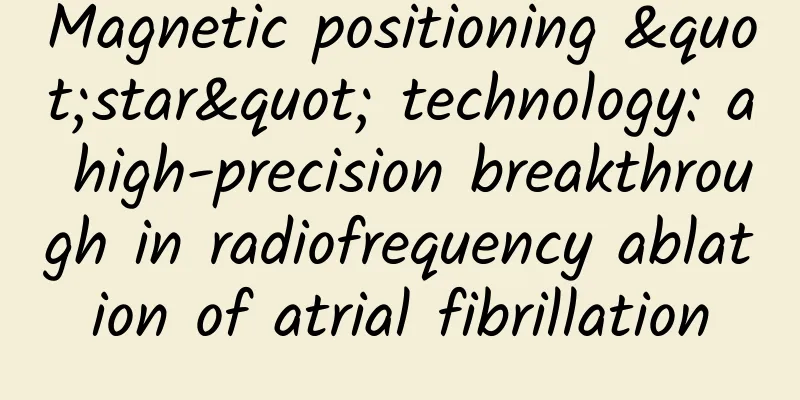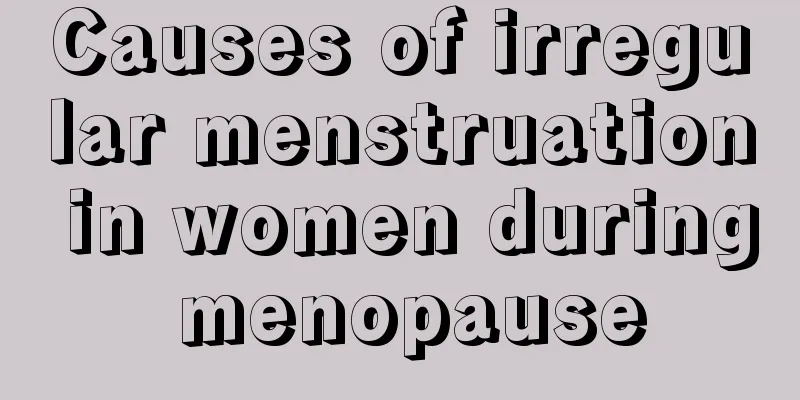Magnetic positioning "star" technology: a high-precision breakthrough in radiofrequency ablation of atrial fibrillation

|
Recently, 76-year-old Mr. Fu was transferred to the Department of Cardiovascular Medicine III of Hunan Hospital of Integrated Traditional Chinese and Western Medicine (Affiliated Hospital of Hunan Institute of Traditional Chinese Medicine) for treatment due to persistent atrial fibrillation. Considering Mr. Fu's advanced age and long-term rapid atrial fibrillation that has led to heart enlargement and heart failure, which has seriously affected his quality of life and life safety, the department decided after collective discussion to perform radiofrequency ablation of atrial fibrillation on Mr. Fu at an appropriate time. (Three-dimensional mapping system to establish atrial model) (Precise positioning of ablation targets in three dimensions) The cardiovascular intervention team led by Director Lu Sheng of the Department of Cardiology III performed radiofrequency ablation on him accurately under local anesthesia with the help of a magnetic navigation three-dimensional mapping system. The operation was successfully completed in 3 hours. During the operation, Mr. Fu's atrial fibrillation rhythm was converted to normal sinus rhythm. He did not complain of any special discomfort during the operation and returned to the ward safely. He was discharged smoothly three days after the operation. (Preoperative electrocardiogram showed atrial fibrillation rhythm) (Postoperative electrocardiogram showed sinus rhythm) 1. What are the clinical symptoms of atrial fibrillation? Director Lu Sheng of the Department of Cardiovascular Diseases III introduced that atrial fibrillation (AF) is one of the most common arrhythmias in clinical practice, and its main manifestation is rapid and irregular contraction of the atria. Under normal circumstances, the electrical activity of the atria is regular, beating about 60-100 times per minute; in atrial fibrillation, the atria beat at a frequency of 350-600 times per minute, and the rhythm is completely irregular. Patients may experience symptoms such as palpitations, fatigue, dizziness, difficulty breathing, chest pain, and even fainting. 2. What are the dangers of atrial fibrillation? Atrial fibrillation not only affects the patient's quality of life, but may also cause the following serious complications : 1. Stroke: The risk of stroke in patients with atrial fibrillation is five times that of the general population. Due to blood stasis in the atrium, blood clots are easily formed. If blood clots break off and enter the cerebral blood vessels, they can cause stroke. 2. Heart failure: Long-term atrial fibrillation can lead to impaired heart function and aggravate heart failure; 3. Decreased cognitive function: Repeated strokes or microembolisms can lead to cognitive impairment; 4. Decreased quality of life: Patients may experience decreased activity tolerance, fatigue, anxiety, etc. 3. What are the advantages of radiofrequency ablation for atrial fibrillation? Professor Xiao Changjiang, head of the Department of Cardiovascular Science , introduced that radiofrequency ablation for atrial fibrillation is one of the effective means of treating atrial fibrillation. It uses the heat energy generated by radiofrequency current to ablate abnormal electrical activity areas in the heart, thereby restoring normal heart rhythm. Radiofrequency ablation for atrial fibrillation has the following significant advantages : 1. Accurate positioning: Through advanced three-dimensional mapping system and real-time navigation technology, the heart model can be accurately constructed, the ablation target can be accurately located, and the success rate of the operation can be improved; 2. Fast recovery: The surgery is less invasive, the patient recovers quickly after surgery, the hospital stay is short, and the patient can return to normal life and work more quickly; 3. Fewer complications: Compared with traditional ablation techniques, this technology causes less damage to surrounding tissues and reduces the incidence of postoperative complications. Radiofrequency ablation of atrial fibrillation is a safe and effective treatment method, especially for patients who are ineffective with drug treatment. With the continuous optimization of technology, the safety and effect of the operation will be further improved, and the hospital has reached the advanced level in the field of atrial fibrillation treatment in the province. Hunan Medical Chat Special Author: Nie Furu, Department of Cardiology III, Hunan Hospital of Integrated Traditional Chinese and Western Medicine (Affiliated Hospital of Hunan Institute of Traditional Chinese Medicine) Follow @湖南医聊 to get more health science information! (Edited by YT) |
<<: Spring is here, be careful to prevent respiratory infections! Keep this guide!
Recommend
Can pumpkin cake be added with rock sugar water? What are the requirements for adding rock sugar water to pumpkin cake?
We all know that there are many flavors of steame...
Understanding the new crown "miracle drug" Namatevir/ritonavir
Recently, everyone is paying attention to the new...
How long does it take to recover from ovarian cyst surgery?
Ovarian cysts are very common gynecological disea...
The labia minora has a pointed bud for two years
If a woman has many small granulations on her lab...
What are the precautions after laparoscopic surgery for ovarian cysts?
Ovarian cysts are very common. Whether surgical t...
Is laser spot removal good?
Laser freckle removal is very popular now. Many p...
"Name" scene - distinguishing between stye and chalazion from their names
Author: Diao Yumei Shandong First Medical Univers...
Is vitamin C related to weight? Weight exceeding this range is the key!
We often say "an apple a day keeps the docto...
Causes of pimples on female vulva
The female vulva is also a female reproductive or...
Pregnant warts and giving birth to a boy
It is common for pregnant mothers to be guessed b...
Is it necessary to remove wisdom teeth when preparing for pregnancy?
Anyone who has experienced toothache will know th...
Treatment and follow-up of bleeding after cervical conization
For many women, when their cervix is diseased, ...
What should I pay attention to when eating hot pot after the confinement period? Can I eat hot pot after the confinement period?
Hot pot seasoning is a dipping sauce used when ea...
Can I still get pregnant with premature ovarian failure? What are the methods?
Generally speaking, patients with premature ovari...
It is better to rest for a few days
For women, pregnancy is supposed to be a very hap...









